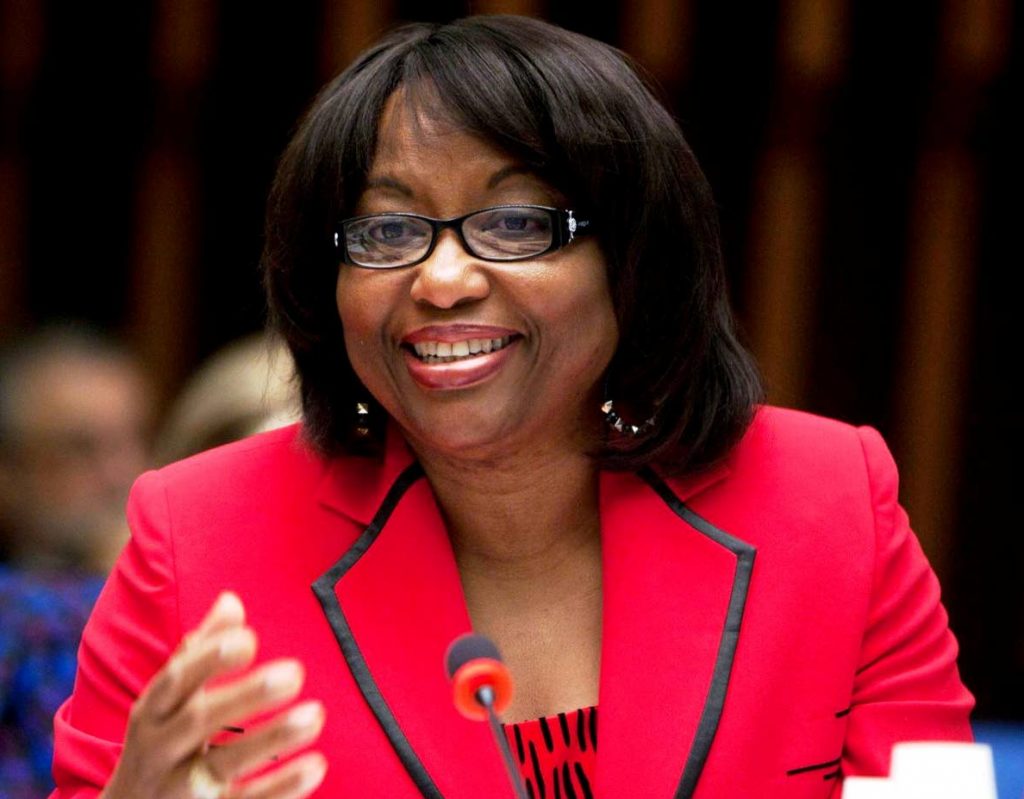PAHO: Children missing school are missing meals

Before the first reported covid19 in the Americas, one in three people in theregion did not have enough to eat, said director of the Pan American Health Organization director (PAHO) Dr Carissa F Etienne.
Today hundreds of millions of people across Latin America and the Caribbean do not know where their next meal will come from, Etienne said, adding that children are especially at risk.
"UNICEF (UN Children's Fund) has estimated that over 141 million children and teens are out of school in our region. For many of these kids, missing schools means missing meals," Etienne said on Wednesday.
"We know without the proper food and nutrition, children can suffer irreversible damage to their physical and cognitive development."
She spoke at PAHO's virtual press briefing on covid19 in the Americas and its response to the pandemic.
"The impact on children and their ability to flourish should be prioritised. This is why PAHO has been working with the Organization of the American States to ensure that schools in our region can allow kids to reach their full potential," Etienne said.
PAHO is in discussions with UNICEF and soon with UNESCO (the UN Educational, Scientific and Cultural Organization) on woringk together on solid guidelines for reopening schools and maintaining health and safety.
"Once the pandemic is over, we will need that this continues and remains a priority," she said."
She expressed concerns about increasing cases in the region. The World Health Organization (WHO) and PAHO found that in the US, there are more than 205,000 new cases daily. The continued rise in infections is particularly worrisome as winter approaches.
She believes that in seeking refuge from the cold, people would be tempted to gather indoors in poorly ventilated areas, causing perfect conditios for the virus to spread.
She also cited Brazil, saying its health system is under strain.
"It is important for health authorities in our region to act by issuing clear guidance and help communities protect themselves and their loved ones," she suggested. "We need co-ordinated efforts to boost hospital capacity in the most effective areas. When hospitals cannot accommodate anyone who is sick, many would die while waiting for care. "
Like other WHO and PAHO members , she is hopeful that the covid19 vaccines will soon come to market and help contain the spread.
"It will take beyond 2021 to arrive at the goals we set for ourselves. We are eager to see vaccines broadly available. It will take time and needs co-ordination across countries.
"We are counting on member states to share resources, work closely with PAHO to ensure equitable access to the vaccines. Most of us must be protected so we can end the pandemic and control transmission."
Until then, Etienne encourages people to rely on what works well – social distancing, wearing masks, and avoiding crowded spaces.
PAHO has been advising countries that the first doses should go to those at the highest risk of infection, such as health workers.
Etienne said, "We expect to see a gradual rollout of doses that will allow countries to offer the vaccines to other priority groups like people with underlying conditions and to eventually reach others who may not be as vulnerable to severe covid19 symptoms."
PAHO assistant director Dr Jarbas Barbosa, director of the department of communicable diseases Dr Marcos Espinal and incident manager Dr Sylvain Aldighieri also shared similar views.

Comments
"PAHO: Children missing school are missing meals"